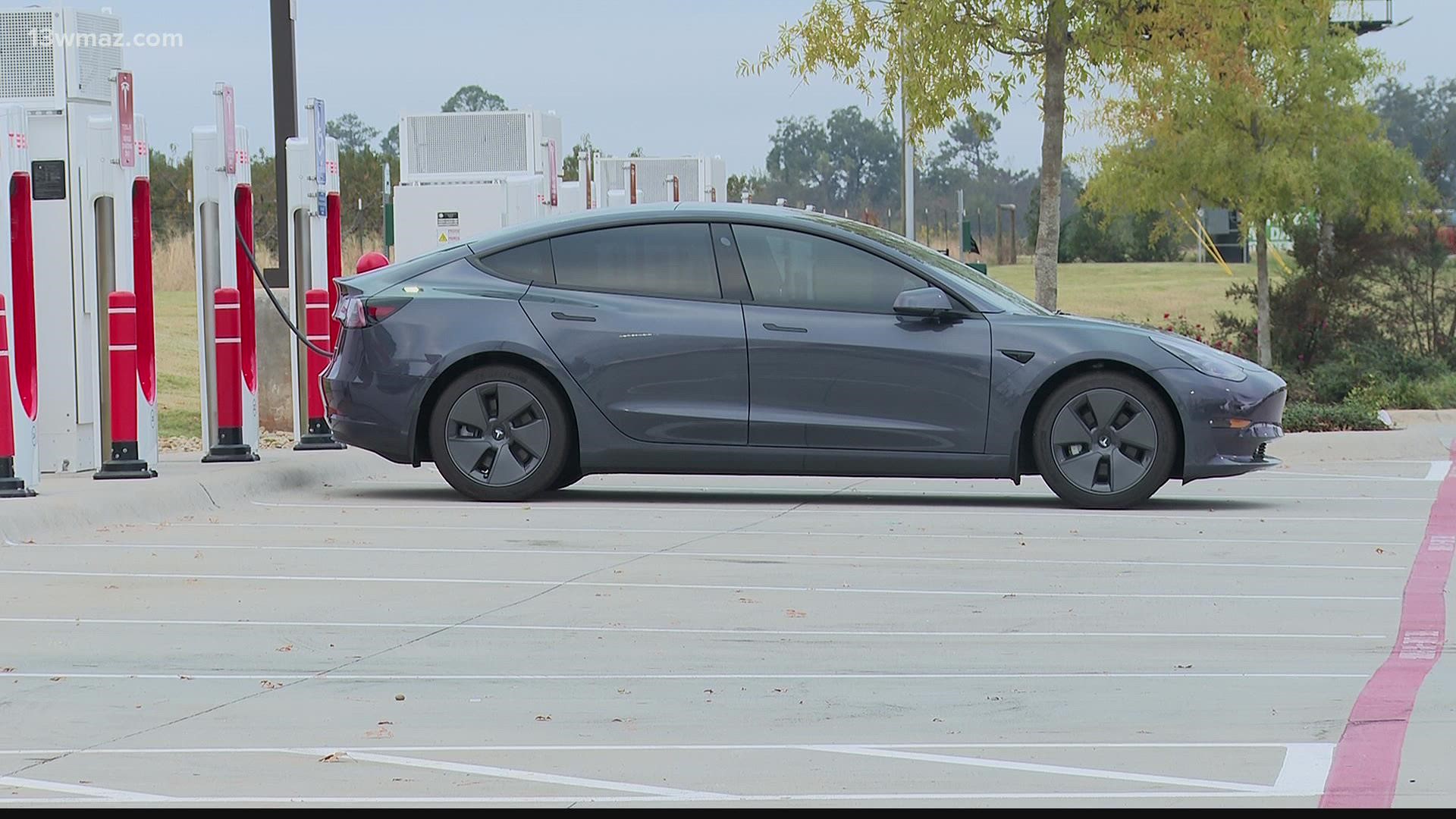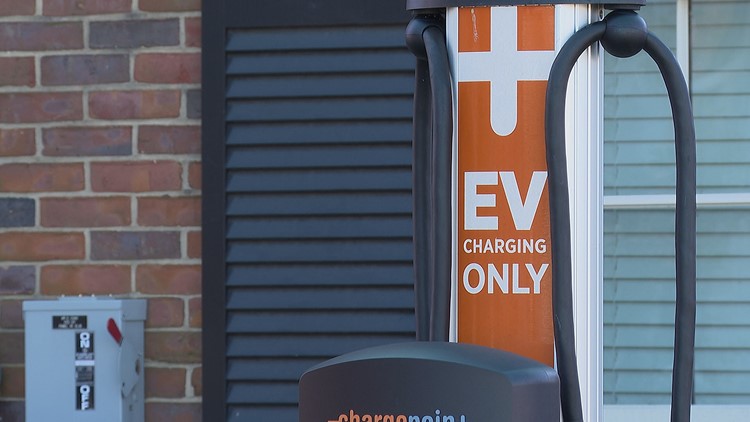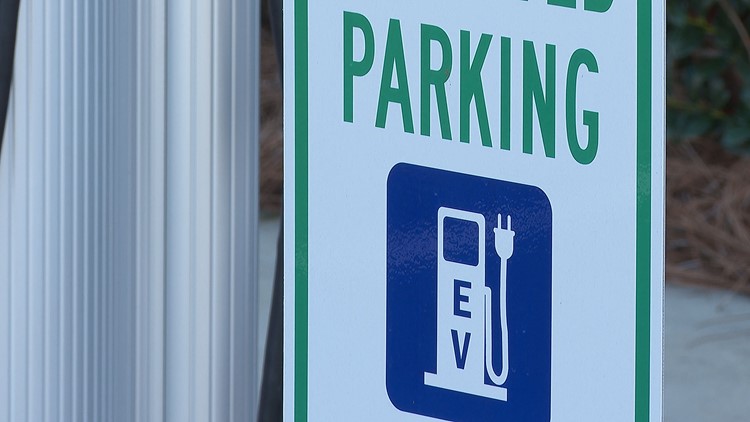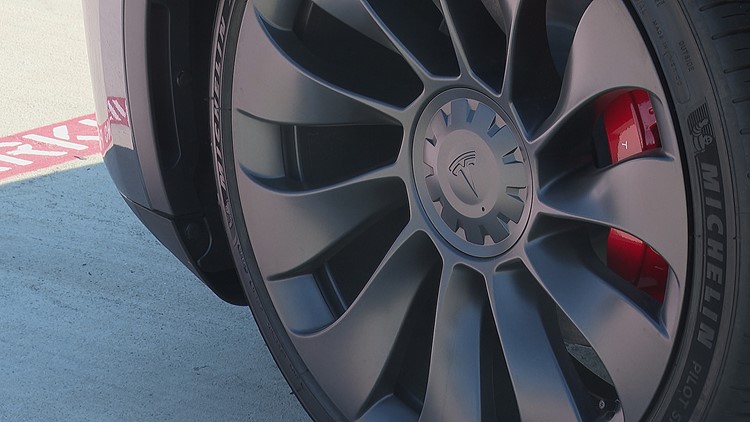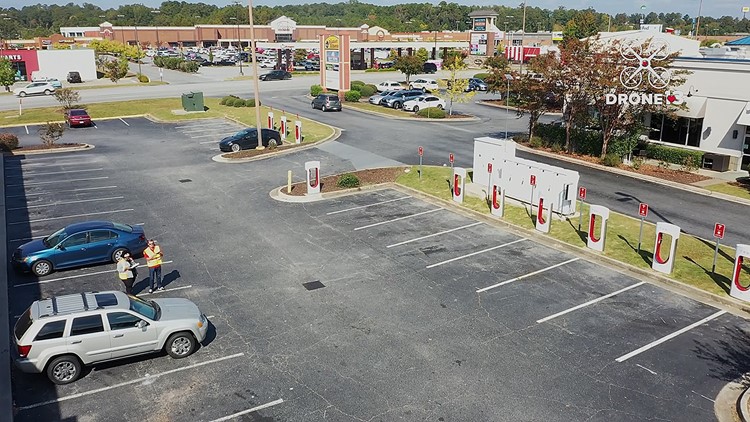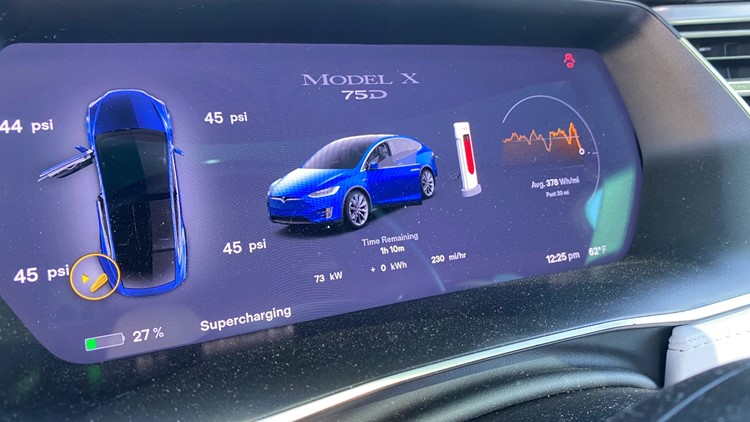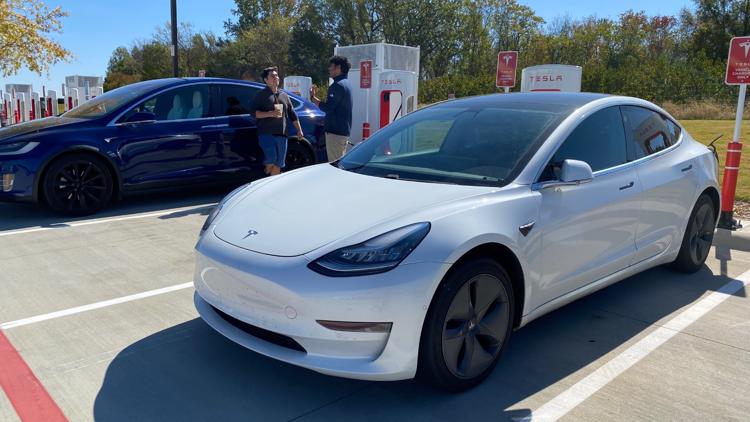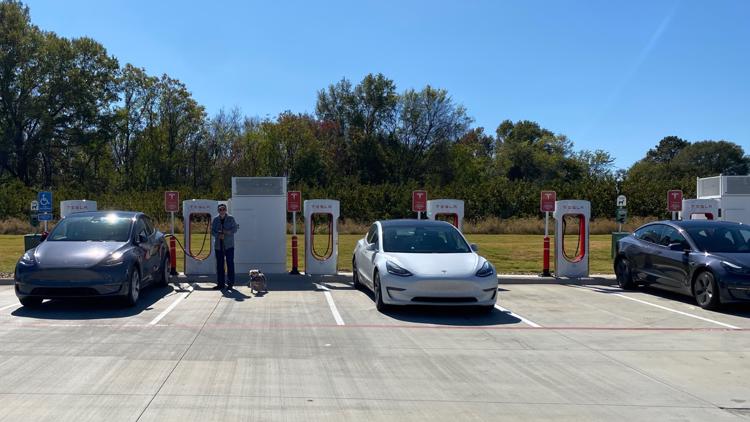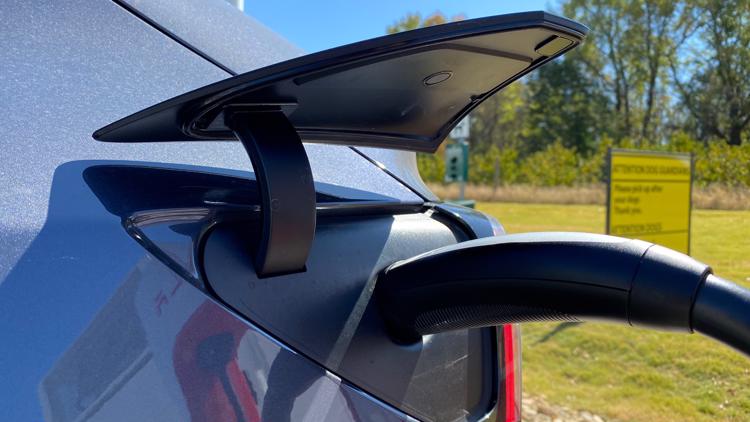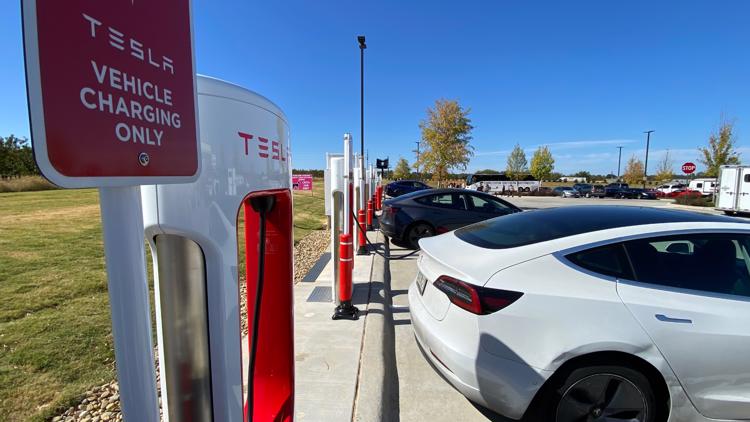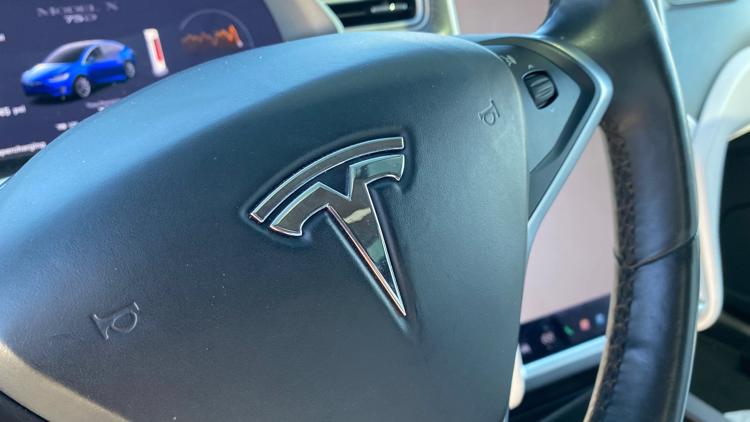'It's already helping': Electric vehicles should save you money over time
Electric cars do not require oil changes, new spark plugs, or air filters.
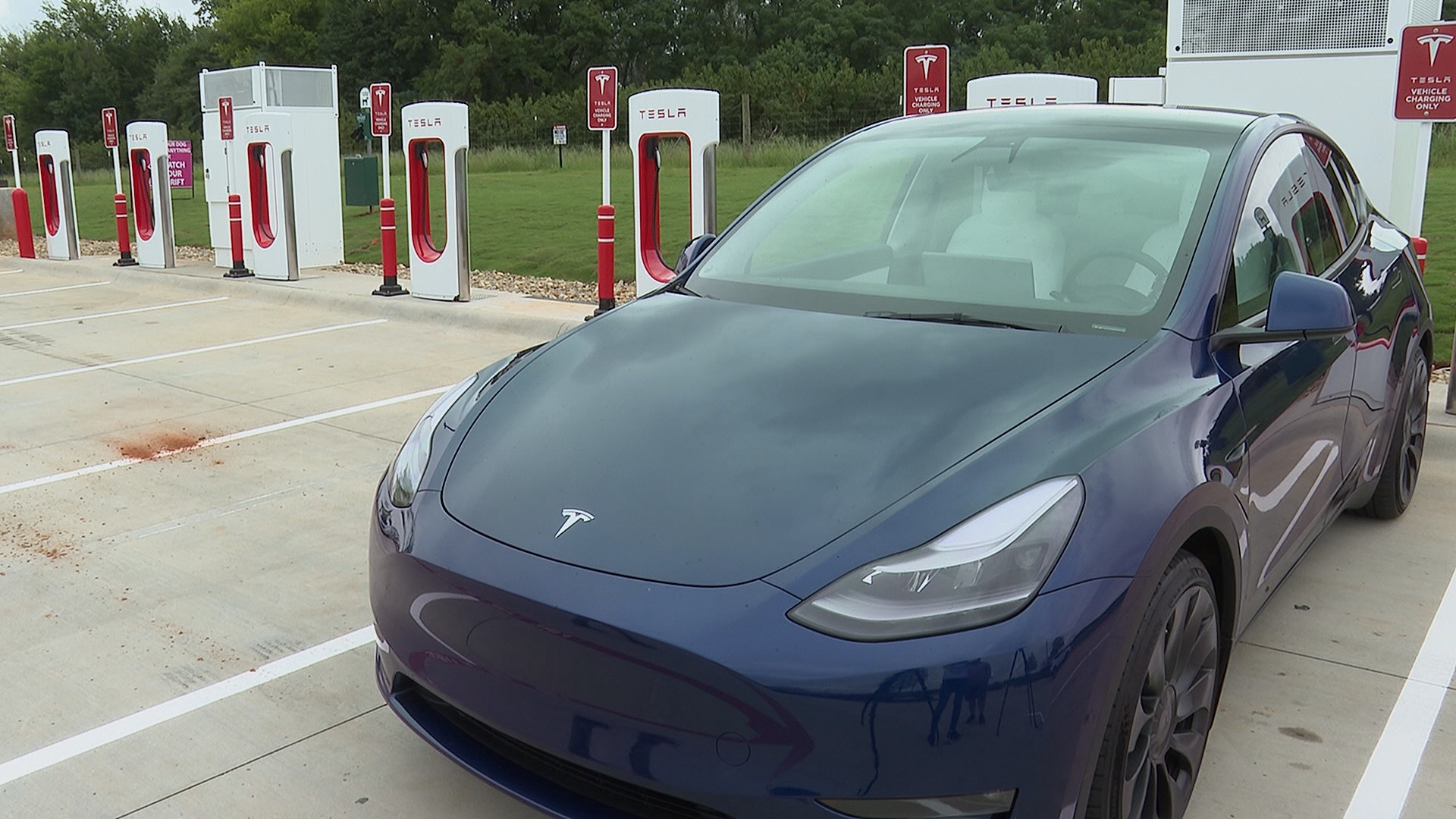
'There is potential to save significant money'
To switch or not to switch? That's the question many Central Georgians are asking themselves when it comes to electric vehicles.
Gloria Combs took the plunge last November. She purchased her dream car, a Tesla, which arrived in March for about $60,000.
"For the price of gas, one thing, more or less, for the environment. It seemed like this year, everything started going up as far as gas is concerned and taking care of the cars, so we just decided to go ahead," Combs said. “Anybody that wants to buy one, I say, 'Go for it.'”
Many like Combs have done just that. Electric vehicle sales continue to steadily rise in the U.S., according to AAA.

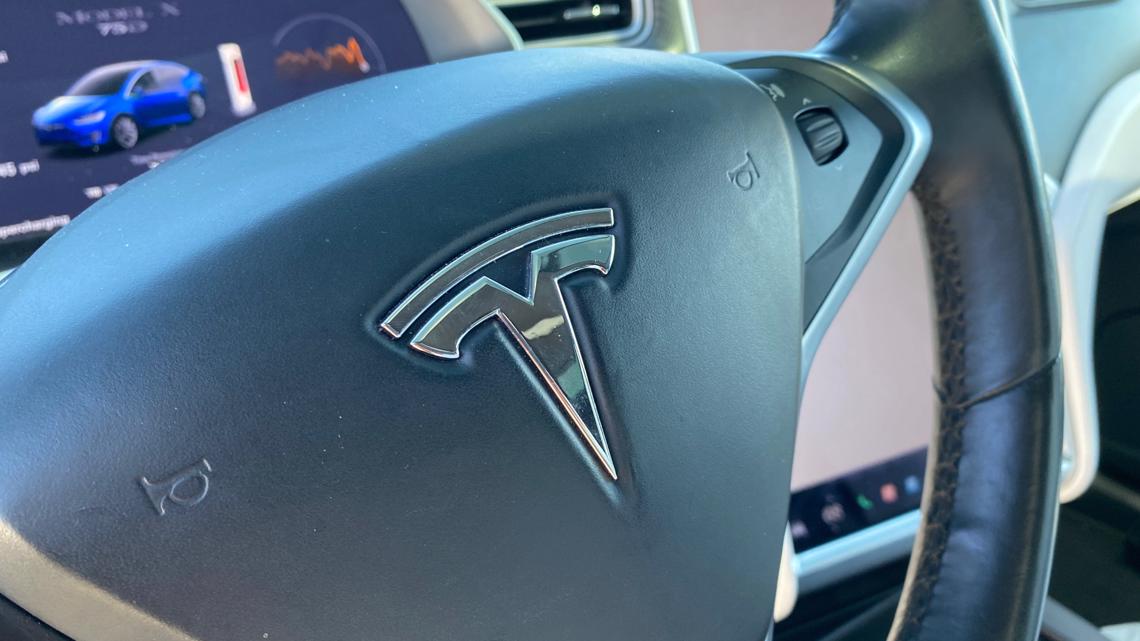
Georgia's promise to bring chargers to highways throughout the state has many wondering if they should invest in an electric vehicle.
"I'd love to have the electric car. It's practical. It's the future, but part of me wants this as a backup,” Shawn Fritz said.
Charging stations and cost are still two of the biggest hurdles for car buyers like Fritz.
"If I am going to go electric, I am going to go full electric," Fritz said.

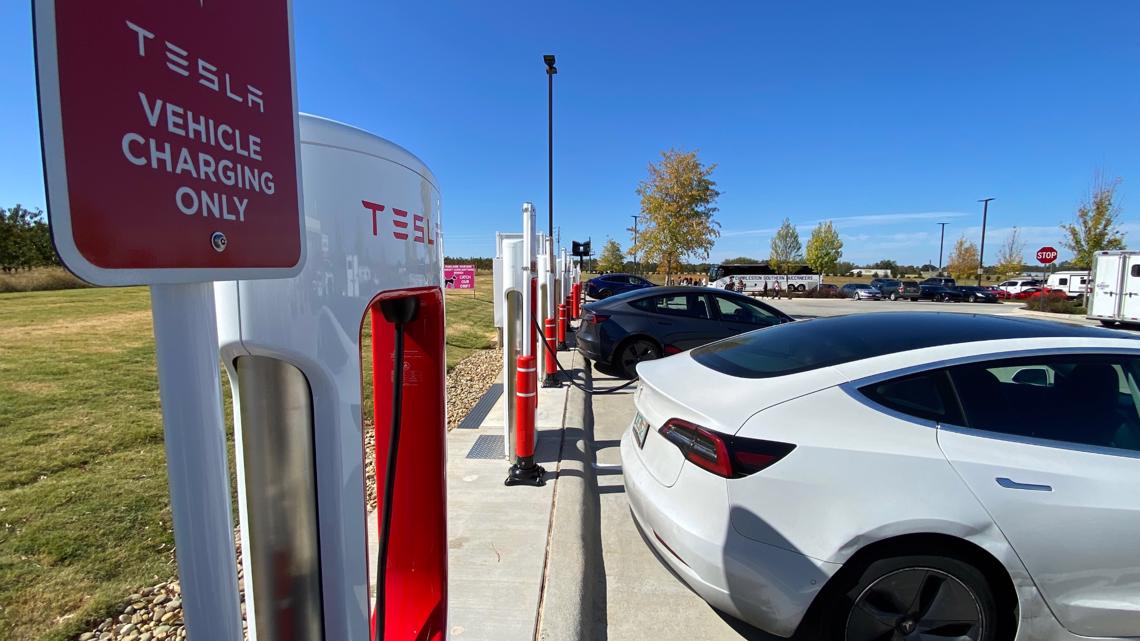
According to AAA, in 2021 through October, people purchased nearly 450,000 electric vehicles. That's an 88% increase from 2020.
Electric car sales are growing, but AAA says less than 1% of the cars and trucks on the road right now are electric.
Analysts predict it will hit 15% by 2030; and 50% by 2050.
A national 2022 AAA survey, shows a quarter of consumers plan to go fully electric for their next vehicle purchase.
"The biggest reason why was because of high fuel prices," AAA Spokesperson Montrae Waiters said.
While fueling costs can vary greatly depending on vehicle type, electricity costs, and gas prices, AAA determined the cost of charging an electric car is two to four times less than fueling a gasoline-powered vehicle, and according to the U.S. Department of Energy's National Renewable Energy Laboratory and the Idaho National Laboratory, electric car owners can save nearly $1,000 a year in fuel costs.
"The gas, you won't even miss it," Combs said.

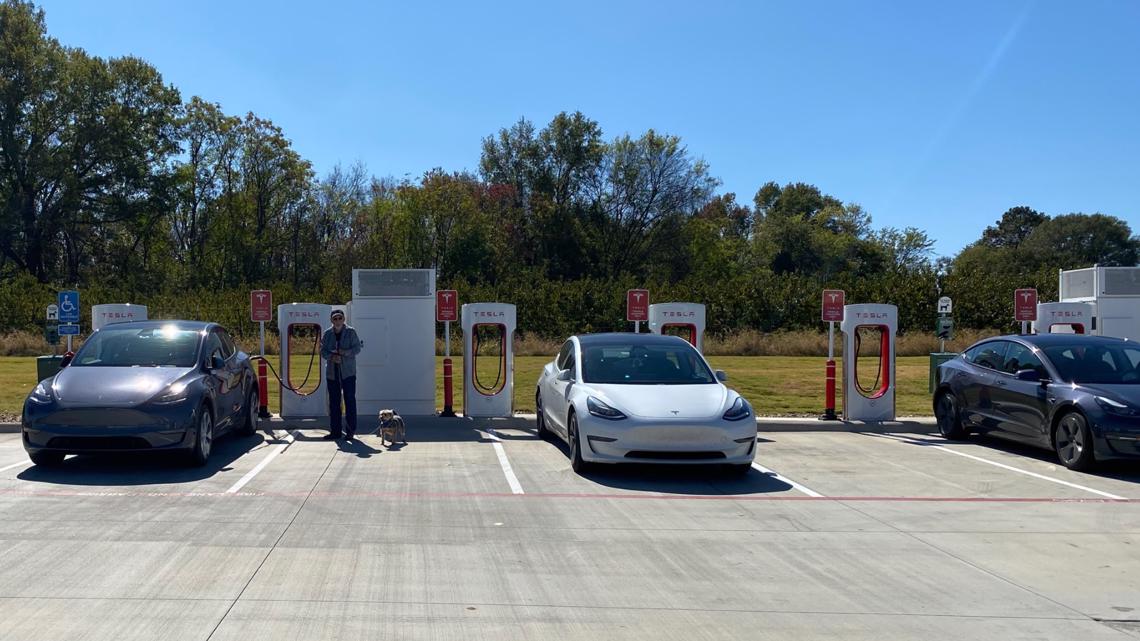
When you drive past a dealership nowadays, you see more and more options.
Some dealerships have electric vehicles, some even have hybrid, and you save more money on your gas bill with an electric vehicle, but do you save more money in the long run?
Waiters says yes.
"EVs may cost more on the front-end, but nine times out of 10, it's still going to cost you less in the long run than owning a gas-fueled vehicle," Waiters said, but you do have to budget for a battery.
Waiter says the cost of your battery depends on the make and model of your electric car.
Some cost about $2,500 and others, $10,000.
PHOTOS: Electric car sales on the rise in Central Georgia
Consumer Reports Senior Energy Policy Analyst Chris Harto says most manufacturers include battery warranties.
"Of course, there are always exceptions, but automakers are designing these vehicles, these batteries to last the life of the vehicles, at least 15 years, 200,000 miles," Harto said.
Waiters and Harto say electric cars don't require oil changes, new spark plugs, or air filters.
"They will cut your maintenance bill about in half, so there is potential to save significant money with these vehicles over time," Harto said.
"It's already helping because of the gas we are not using. No oil changes. No transmission," Combs said.

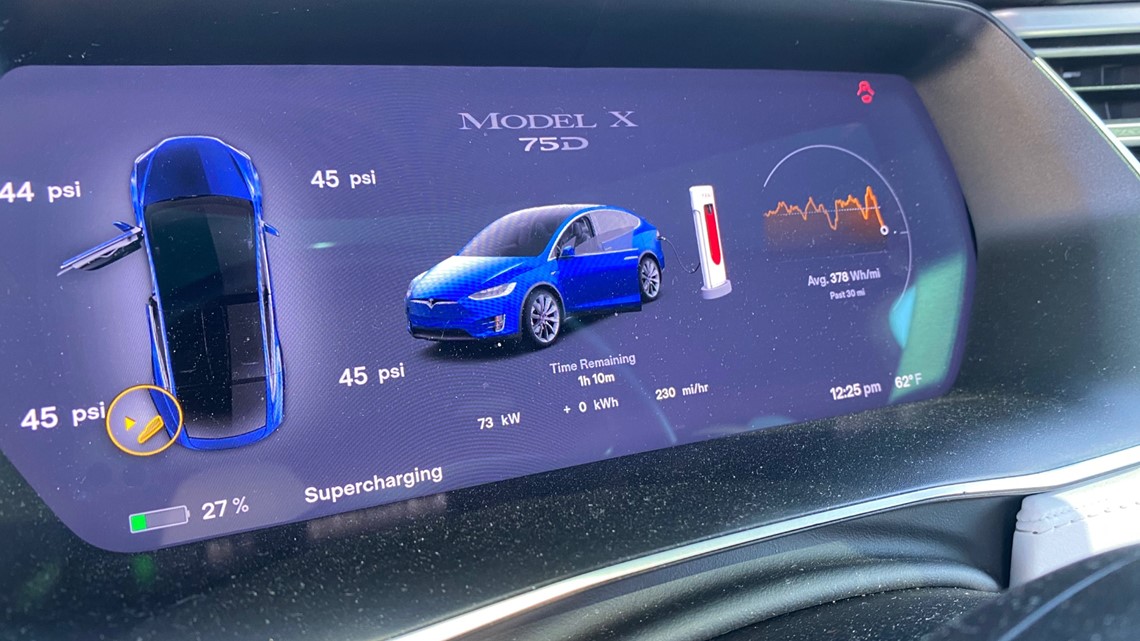
So, the data shows electric can be cheaper overall.
"It will pay for itself," Combs said.
Fritz says he'll stick with his Jeep for now, but he might make the switch in time.
"Just enjoy your Jeeps while they are here, while we have gasoline. I don't know how much longer that asset that we pull from the Earth is going to last, but be prepared for electric, because it's the future," Fritz said.
To summarize, you can purchase a new, electric 2023 Nissan LEAF for as low as $28,000; compared to a new 2023 Honda Civic, which can be as low as $24,000, and charging at home would cost you about $10 a charge, which works out to about $0.03 a mile.
A public charging station will cost you more about $0.07 a mile, and driving around on $3 a gallon gas tank costs you about 10 cents a mile.
In September, Georgia received federal approval and $130 million to pay for more charging stations throughout the state.
The state plans to place charging stations every 50 miles off I-75, I-20 and I-16, and in May, Governor Brian Kemp's office announced Hyundai Motor Group is going to invest $5.54 billion in Georgia for a "fully dedicated electric vehicle and battery manufacturing facility."
They broke ground on the new facility this week. The factory will open in 2025, with at least 8,100 employees producing up to 300,000 electric vehicles per year.
ELECTRIC CARS IN CENTRAL GEORGIA


